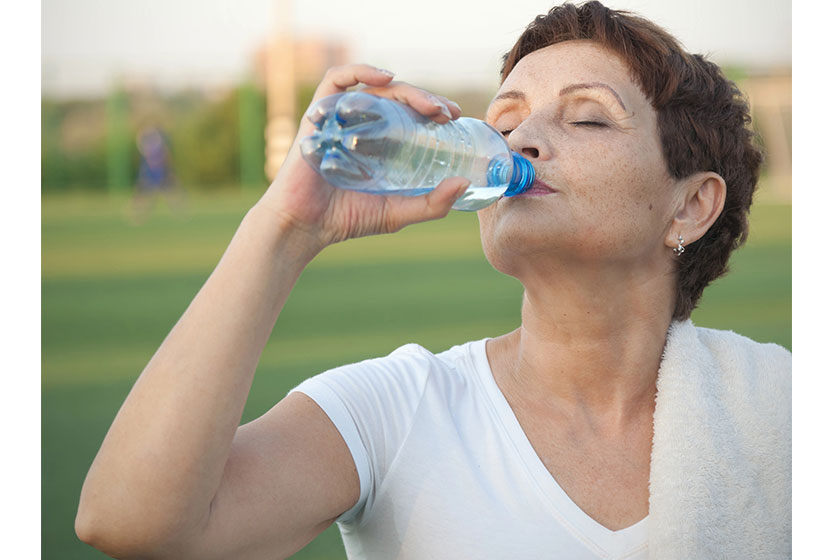Dehydration is a condition that can quietly develop in older adults, often leading to serious health issues. Your loved ones may experience diminished thirst as they age, making it harder for them to recognize when their bodies need more fluids. Understanding the consequences of dehydration in seniors can help you take steps to protect their well-being and maintain their quality of life.
Why Older Adults are More Susceptible
As people age, their bodies undergo changes that increase the risk of dehydration. Reduced kidney function means the body is less efficient at conserving water, and a diminished sense of thirst can result in lower fluid intake. Some medications and chronic conditions further contribute to the risk, creating a perfect storm for dehydration in the elderly.
For individuals with memory issues, such as those with dementia, the risk becomes even greater. Forgetting to drink water or recognizing symptoms can leave them vulnerable. This makes it imperative to stay proactive about hydration habits for your loved ones.
Recognizing the Signs
The signs of dehydration can be subtle, especially in older adults who may not feel thirsty. Common symptoms include dry mouth, infrequent urination, and dark-colored urine. Your family member may also experience fatigue, dizziness, or confusion, which can be mistaken for other health issues.
Severe dehydration can lead to serious complications, such as heat-related illnesses, kidney problems, or even hospitalization. Recognizing these warning signs early can prevent the condition from escalating and protect their overall health.
The Hidden Consequences of Dehydration
The consequences of dehydration in the elderly go beyond thirst and fatigue. Chronic dehydration can impair kidney function, increase the risk of urinary tract infections, and even contribute to cognitive decline. For older adults with pre-existing conditions, such as diabetes or heart disease, the effects can be even more pronounced.
You may also notice changes in mood or behavior in a dehydrated family member. Confusion, irritability, or excessive sleepiness can disrupt daily life and may even mimic symptoms of more serious medical conditions. Understanding these potential outcomes highlights the importance of hydration for their overall well-being.
Strategies to Prevent Dehydration
Encouraging consistent hydration throughout the day is one of the most effective ways to combat dehydration in older adults. Offer water at regular intervals, even if they do not express thirst. Additionally, foods with high water content, such as cucumbers, melons, and berries, can contribute to their fluid intake.
Limiting beverages that promote fluid loss, such as those containing caffeine or alcohol, is another helpful approach. Setting reminders or establishing routines around drinking water can also help those who struggle with remembering to stay hydrated.
When to Seek Medical Attention
Sometimes, dehydration becomes severe enough to require immediate medical intervention. If your loved one experiences prolonged vomiting, persistent diarrhea, or symptoms like confusion and disorientation, contact a healthcare provider. These signs indicate that their body may be unable to recover without professional help.
Other symptoms, such as an inability to keep fluids down or bloody stools, also warrant urgent medical attention. Taking prompt action can prevent long-term health complications and restore their comfort and stability.
The Role of Hydration in Cognitive and Physical Function
Hydration plays a significant role in maintaining both cognitive and physical health in older adults. Dehydration can lead to memory lapses, difficulty concentrating, and slower reaction times, which may impact daily activities and safety. For those already managing cognitive challenges, even mild dehydration can exacerbate symptoms, making it harder to perform routine tasks.
Physically, dehydration affects energy levels and muscle function, increasing the risk of falls and injuries. Staying hydrated helps support muscle strength, joint lubrication, and overall mobility. Encouraging regular water intake not only supports their mental clarity but also their ability to move confidently and independently.
Building a Routine around Hydration
Creating a daily routine focused on hydration can make a meaningful difference for your family member. Encourage them to begin their day with a glass of water and integrate fluids into meals and snacks. Offering herbal teas or flavored water can also make hydration more appealing, especially for those who find plain water unappealing.
Keep water accessible by placing bottles or cups within reach throughout their living space. If necessary, consider using technology like hydration apps or alarms to remind them to drink water at consistent intervals. Building this habit can lead to better long-term health outcomes and help prevent the consequences of dehydration in older adults.
Hydration for a Healthier Future
Protecting your senior loved ones from the consequences of dehydration requires a thoughtful and proactive approach. By understanding their unique needs and encouraging healthy hydration habits, you can support their overall health and well-being. Recognizing the warning signs early and knowing when to seek help will give you the tools to care for them effectively.







